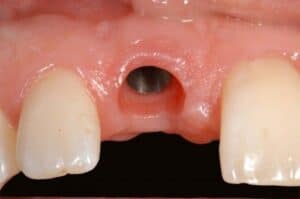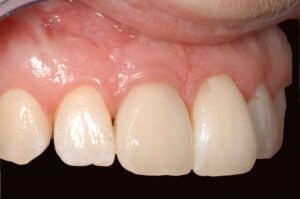When describing dental implants, the best comparison is to your natural teeth. A natural tooth consists of two parts – the root of the tooth buried below the gum line, and the white enamel that is visible above it. Similarly, a dental implant has the titanium component buried invisibly below the gum, and on top of it the porcelain crown which is matched to the colour of your own teeth. As the most permanent treatment for replacing missing teeth, dental implants are the next best thing to getting your own teeth back.

We use Implants fabricated by Straumann – currently the world’s biggest implant company.






